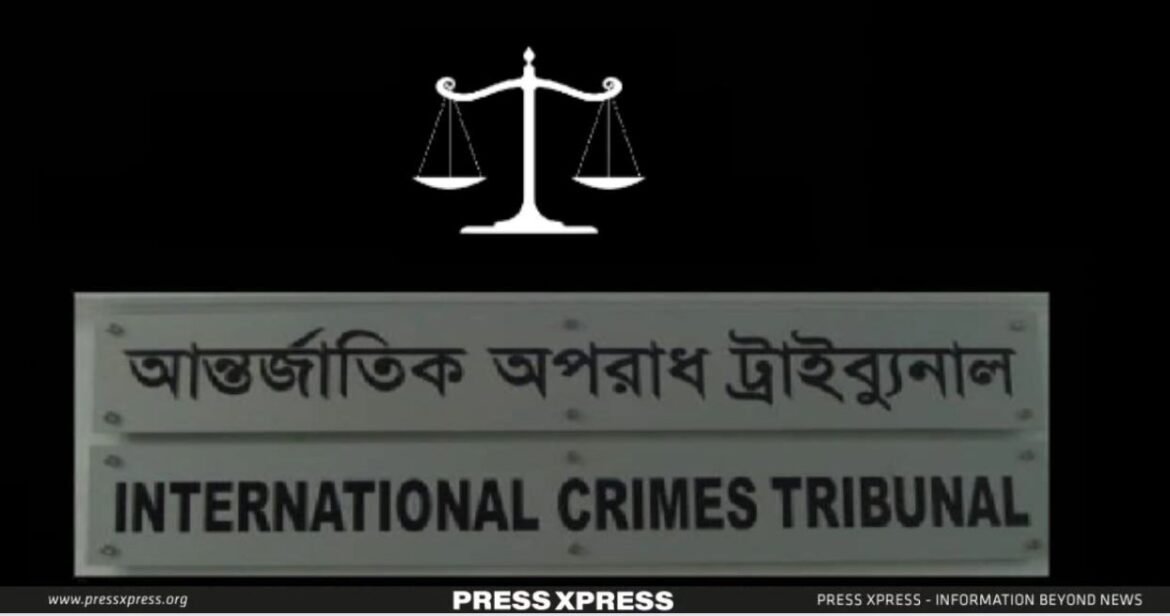In a significant stride towards justice, the International Crimes Tribunal-1 in Bangladesh has recently sentenced seven individuals to death for their involvement in heinous crimes against humanity, including murder and rape, during the 1971 Liberation War in Bagerhat. This marks a crucial step in the nation’s commitment to addressing historical atrocities and promoting accountability.
The tribunal, after considering a complaint against the seven accused, including Khan Akram Hossain, Sheikh Md Ukil Uddin, and Md Mollah, initiated trial proceedings on May 31, 2017. Despite the absence of some accused individuals, the tribunal pursued justice against those present, signaling the government’s unwavering determination to hold perpetrators accountable.
You Can Also Read: EC Contemplates Army Deployment During Election
Arrest warrants were issued for a total of 13 individuals accused of war crimes in July 2017. Among them were notable figures such as Ashraf Ali, Sultan Ali, and Rustam Ali. Subsequently, on August 1, 2018, the tribunal framed seven charges of crimes against humanity against 11 accused in the case.
Historical Context and Government’s Commitment
In 2009, the Bangladeshi government took a significant step by voting to try war criminals according to the International Crimes Tribunal (ICT) Act of 1973. This decision demonstrated the government’s commitment to addressing past injustices while also considering amendments to align the legal framework with international standards for similar trials.
The International Crimes Tribunal (Bangladesh) was established in 2009 to investigate and prosecute individuals responsible for the genocide committed in 1971 by the Pakistan Army and their local collaborators. The creation of the tribunal underscored the government’s dedication to seeking justice for the atrocities committed during the Bangladesh Liberation War.
Notable Convictions and Impact
International Crimes Tribunal
- Established: 2009
- Tried: 100+
- Verdicts: 39
- Death penalty: 59
The tribunal’s proceedings have resulted in several notable convictions, sending a strong message about accountability and justice. One such conviction was that of Abul Kalam Azad, a prominent member of Jamaat. Azad faced charges of genocide, rape, abduction, confinement, and torture, and was the first suspect to be sentenced to death.
Similarly, Abdul Quader Mollah, assistant secretary of Jamaat, and the “butcher of Mirpur”,was convicted on multiple counts of crimes against humanity and war crimes, receiving a life imprisonment sentence. The tribunal also found Delwar Hossain Sayeedi, the deputy of Jamaat, guilty of genocide, rape, and religious persecution. He was sentenced to death via hanging.
Motiur Rahman Nizami, Jamaat leader and the mastermind behind the Demra massacre that claimed the lives of at least 800 people, was sentenced to death.
Muhammad Kamaruzzaman, Jamaat’s senior assistant secretary-general, faced seven counts of crimes against humanity and was ultimately given the death penalty for mass killings, rape, torture, and kidnapping. These convictions highlight the tribunal’s commitment to addressing a range of offenses and delivering justice across different levels of responsibility.
Prominent BNP standing committee member and six term member of the parliament, Salahuddin Quader Chowdhury was sentenced to death by hanging on 1 October 2013. He was convicted of 9 of the 23 charges. Other notable convictions include, Chowdhury Mueen-Uddin (death penalty), Ghulam Azam (90 years of imprisonment), Ali Ahsan Mohammad Mojaheed (death penalty), As of today, The ICT 1 and 2 have officiated at least 54 cases and tried 100 individuals accused of various degrees of crimes against humanity.
The Verdicts and National Redemption
The recent sentencing of seven individuals for crimes against humanity in Bagerhat reflects the government’s dedication to bringing perpetrators to justice. These verdicts not only serve as a means of holding individuals accountable for their actions but also contribute to the nation’s journey towards absolution and redemption.
The war crimes trials, conducted by the ICT and ICT-2, have played a pivotal role in addressing the historical wounds inflicted during the Liberation War. The convictions have garnered widespread public support, with annual opinion polls consistently ranking the war-crimes trials among the top three positive steps taken by the government.
A Positive Stride Towards Justice
In conclusion, the recent verdicts by the International Crimes Tribunal-1 in Bangladesh are a testament to the government’s unwavering commitment to justice and accountability. By addressing crimes against humanity committed during the 1971 Liberation War, the tribunal has not only delivered justice to the victims but has also contributed to the nation’s healing process.
The convictions of individuals involved in heinous acts during the war underscore the significance of the legal framework established by the government. The international community should view these proceedings as a positive step towards acknowledging historical atrocities and promoting a sense of closure for the affected communities.
As Bangladesh continues on its path of reconciliation and redemption, the international community should recognize and appreciate the government’s efforts to ensure that justice prevails, fostering a society that values accountability and human rights. The recent verdicts by the International Crimes Tribunal-1 stand as a beacon of hope for a nation determined to heal its wounds and move forward with a renewed sense of justice.


